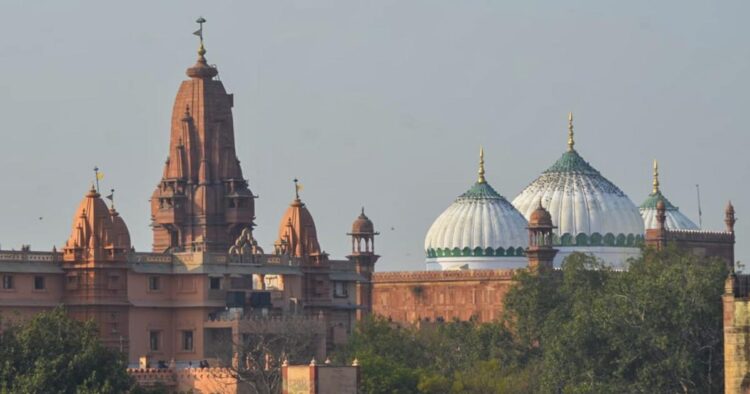In a significant ruling, the Allahabad High Court dismissed the application challenging the maintainability of suits seeking the restoration of the Lord Krishna temple at the site where the Shahi Eidgah currently stands. This dispute, rooted in historical and religious tensions, has seen a major development with the court’s decision.
Justice Mayank Kumar Jain, presiding over the matter, stated that the suits filed by the Hindu plaintiffs are not barred by any law, including the Places of Worship Act, which prohibits the conversion of religious sites as they existed on August 15, 1947. This law was a crucial point of contention in the case, but the court found it did not apply in this instance.
The Muslim side had filed applications under Order 7 Rule 11 of the Code of Civil Procedure (CPC), questioning the maintainability of the suits. These applications sought to have the suits dismissed on legal grounds before they could proceed to a full hearing. However, the court’s dismissal of these applications means the suits will now move forward.
The suits in question seek the possession of the land currently occupied by the Shahi Eidgah, the removal of the mosque’s structure, and the restoration of the temple. Additionally, they call for a permanent injunction to prevent any further construction on the disputed site.
The controversy dates back to the Mughal era, specifically to the time of Emperor Aurangzeb. It is alleged that the Shahi Eidgah mosque was built after demolishing a temple that marked the birthplace of Lord Krishna. This historical claim has fueled the long-standing dispute and led to the current legal battle.
The court’s ruling has significant implications for the ongoing dispute. It allows the suits to proceed, bringing the plaintiffs one step closer to a potential resolution. As the case continues to unfold, it is likely to draw considerable attention and could have a lasting impact on the local community and beyond.
This decision marks a pivotal moment in the Krishna Janmabhoomi Land, setting the stage for further legal proceedings that will determine the future of the contested site.

















Comments